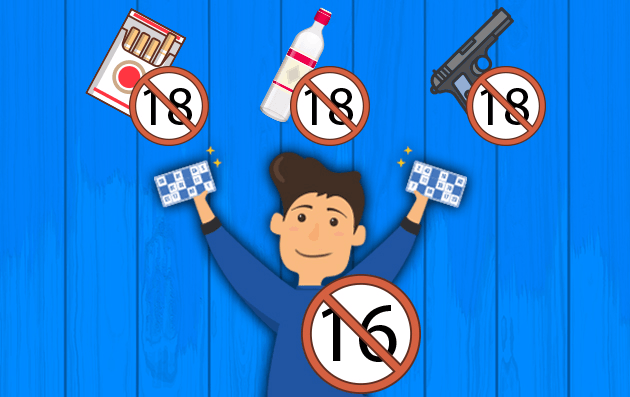Age restrictions are a common practice in various activities and industries. They are put in place to ensure the safety, well-being, and appropriate experiences for individuals of different age groups. Understanding age restrictions and their importance is essential for both participants and organizers.
Understanding Age Restrictions
Age restrictions refer to limitations or requirements based on the age of individuals. These restrictions are set by organizations, businesses, or governing bodies to regulate access to certain activities, services, or products. They can apply to a wide range of areas, including entertainment venues, online platforms, sports events, and more.
The Importance of Age Restrictions
Age restrictions serve several purposes, including:
 There are limits to the amount of money I can earn
There are limits to the amount of money I can earn- Protecting minors from potentially harmful or inappropriate content, situations, or activities.
- Promoting safety by ensuring individuals have the necessary physical, mental, or emotional maturity to engage in particular activities.
- Complying with legal requirements and regulations, such as age-specific laws related to alcohol, gambling, or driving.
- Creating age-appropriate environments that cater to the needs and interests of different age groups.
Common Misconceptions
There are some common misconceptions regarding age restrictions:
- Age restrictions are arbitrary: Age restrictions are often based on research, industry standards, or legal requirements to ensure the well-being and appropriateness of the activity.
- Age restrictions are only for minors: While age restrictions primarily aim to protect minors, they can also apply to adults in certain situations, such as age-specific sports competitions or senior citizen discounts.
- Age restrictions are only about physical age: Age restrictions may consider factors beyond chronological age, such as mental or emotional maturity, skill level, or legal status.
Tips for Enforcing Age Restrictions
Organizations and businesses can take various measures to enforce age restrictions effectively:
- Clear communication: Clearly state age restrictions through signage, website information, or ticketing systems to inform potential participants.
- ID verification: Implement ID checks or age verification procedures to ensure compliance with age restrictions.
- Training staff: Train employees or volunteers to recognize fake IDs, understand age-related laws, and handle age-related situations professionally.
- Monitoring: Regularly monitor activities or platforms to detect and address any violations of age restrictions.
Conclusion
Age restrictions play a vital role in safeguarding individuals and maintaining appropriate environments for different age groups. Understanding the reasons behind age restrictions and their enforcement methods is crucial for both participants and organizers to ensure safety, legality, and enjoyable experiences.
Hey! This content may interest you What is the process to withdraw my winnings?
What is the process to withdraw my winnings?Frequent Questions
1. What are age restrictions?
Age restrictions are limitations or requirements based on the age of individuals, set by organizations to regulate access to certain activities, services, or products.
2. Why do certain activities have age restrictions?
Certain activities have age restrictions to protect individuals from harm, ensure safety, comply with legal requirements, and create age-appropriate environments.
3. How can age restrictions be enforced?
Age restrictions can be enforced through clear communication, ID verification, staff training, and regular monitoring of activities or platforms.
Hey! This content may interest you What benefits does gamer monetization offer?
What benefits does gamer monetization offer?4. Are there any penalties for violating age restrictions?
Penalties for violating age restrictions vary depending on the activity and jurisdiction. They can range from warnings and fines to legal consequences, especially in cases where safety or legality is compromised.
